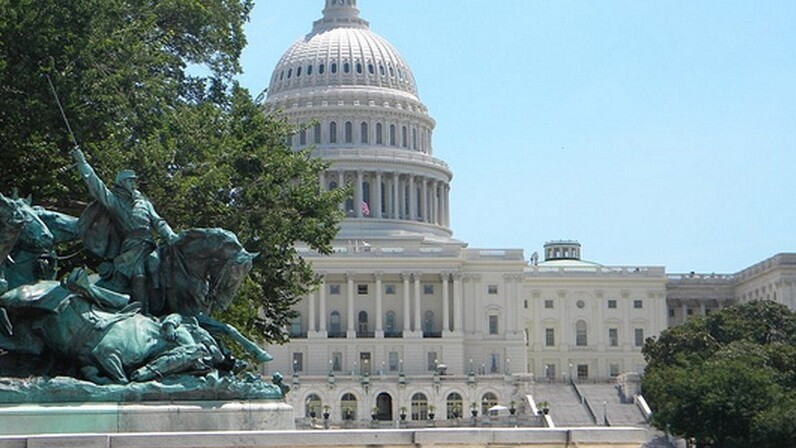
According to a report from Politico’s Pro arm, Google’s lobbying budget is higher than many perhaps expected, TNW included: $25 million during the course of the FTC probe into its business practices, examining claims of anti-competitive behavior.
The political spending database Open Secrets mostly corroborates the Politico figure, tallying a total of $24 million spent by the company in 2011 and 2012. The FTC probe lasted for 20 months, concluding this morning.
The result of the probe – putting aside the mobile, Motorola, and patent decisions – was that Google would make minor changes to its business practices, but that the company had not acted illegally in promoting its own products and services in its search results. They key paragraph, via TNW’s coverage this morning:
[T]he FTC concluded that the introduction of Universal Search, as well as additional changes made to Google’s search algorithms – even those that may have had the effect of harming individual competitors – could be plausibly justified as innovations that improved Google’s product and the experience of its users. It therefore has chosen to close the investigation.
It was an impressive victory. Google’s search practices were essentially left in tact, despite strident cries from others such as Microsoft, the FairSearch.org coalition, and the European Union.
Google was hard at work to manage the all-but-coup, as Politico reports:
To ward off an antitrust case, Google relied on alliances with The Heritage Foundation, and liberals like free-speech advocate Eugene Volohk and former FTC staffer David Balto. They all helped raise public doubts about an antitrust probe of a company that once received praise in the president’s State of the Union address.
What is stunning about the Google case is how cheap influence is in Washington, something that TNW has touched on before. Google, a company with cash and equivalents of roughly $50 billion, had to spend just 0.05% of its ready currency to fend of what could have been a nearly existential threat to parts of its core business.
And with only between $45 and $50 billion in cash, depending on the quarter, Google is merely among the cash rich in technology, as other notable firms such as Microsoft and Apple have more dollars in the bank than it does at the moment.
Zynga has hired a team to lobby for it in Washington. Netflix spent over $1 million and formed its own PAC to help push its legislative agenda. 14 Internet heavyweights – Google included – have formed a group called The Internet Association to push their vision on the Hill. Midway through the 2012 presidential election cycle, 43 top tech figures such as Marissa Mayer had donated a combined $27 million to the President’s campaign. The list goes on.
Google’s victory is almost banal, in a way, as it is sordidly normal; spend, and win. This is not to say that Google’s action were unethical in any way, they were in fact perfectly above board by our country’s current standards.
TNW’s repeated point that just as politics is becoming more technological, technology is becoming increasingly political has never felt more true than today.
Top Image Credit: ttarasiuk
Get the TNW newsletter
Get the most important tech news in your inbox each week.




